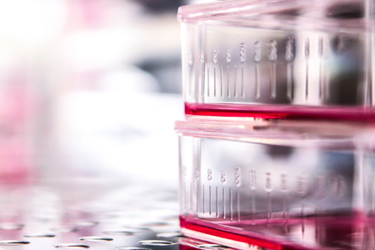Development And Scalability Of A Robust Suspension-Based Production Process For AAV9
By A. Schulze, R. Derler, B. Finkbeiner, A. Youssef, M. Langhauser, K. Heller, F. Sonntag, and M. Hoerer

Recombinant adeno-associated virus (rAAV) is the most commonly used viral vector for in vivo gene therapy. Among the various capsids utilized in clinical trials, AAV9, AAV2, AAV8, and AAV5 are the most prominent, with AAV9 being the most widely applied. AAV manufacturing processes generally include platform modules that work universally across different serotypes, though certain steps require specific development and optimization for each serotype or capsid variant. These include aspects such as molecular plasmid design, plasmid ratios, and affinity/full-empty chromatography.
Here, we present the development of a robust, scalable, suspension-based production process for AAV9. Utilizing our split 2-plasmid system, we conducted a screening strategy on the Ambr 15 bioreactor system to determine optimal production parameters. The most promising conditions were further tested and validated in scaled-up bioreactors, reflecting large-scale production formats. A wide range of analytical methods were employed, showing comparable yields to rAAV control batches at the highest quality.
Our suspension platform process, developed using our HEK293 cell line, has been optimized for maximum yield and top-tier quality, with full scalability. This platform has been proven for multiple capsid serotypes, and we are continuously expanding our data to demonstrate its broad applicability. The production process originally designed for an AAV3-like capsid has now been successfully adapted for AAV9 with minimal adjustments, underscoring its potential as a versatile platform for manufacturing various AAV serotypes.
Get unlimited access to:
Enter your credentials below to log in. Not yet a member of Outsourced Pharma? Subscribe today.
